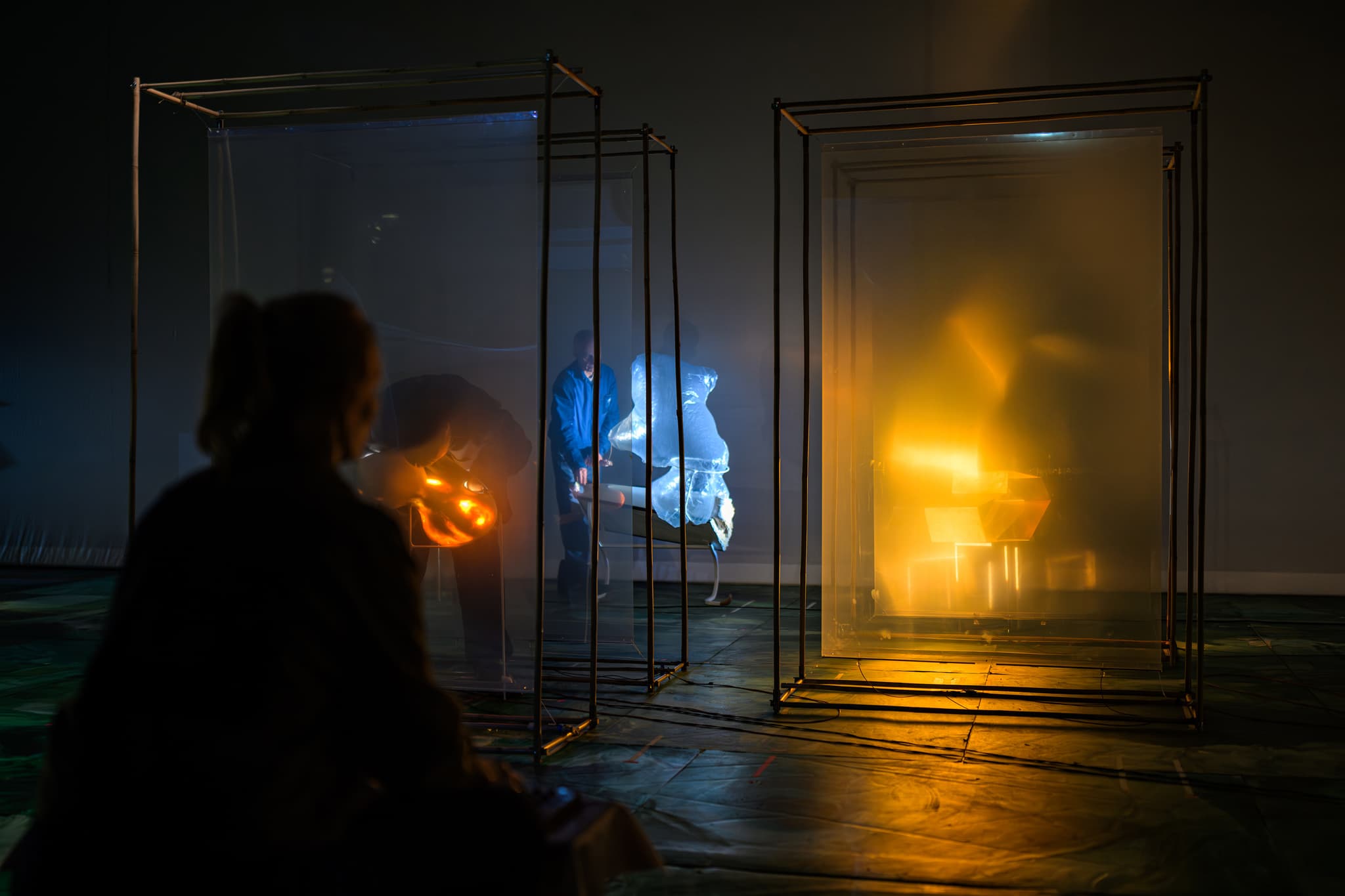
REVIEW: Reflections on Rewire Festival
To listen—really listen—is to witness. But as Zahra Malkani suggested in To Beat To Burn, alistening session and workshop held at Rewire, it is also to destabilise. Rewire’s power came notonly from its musical and performative showcases, but from its rupturing of expectations, invitingus to feel the raw tension between silence and signal, voice and void, through installations, talks,workshops, space, and sound.
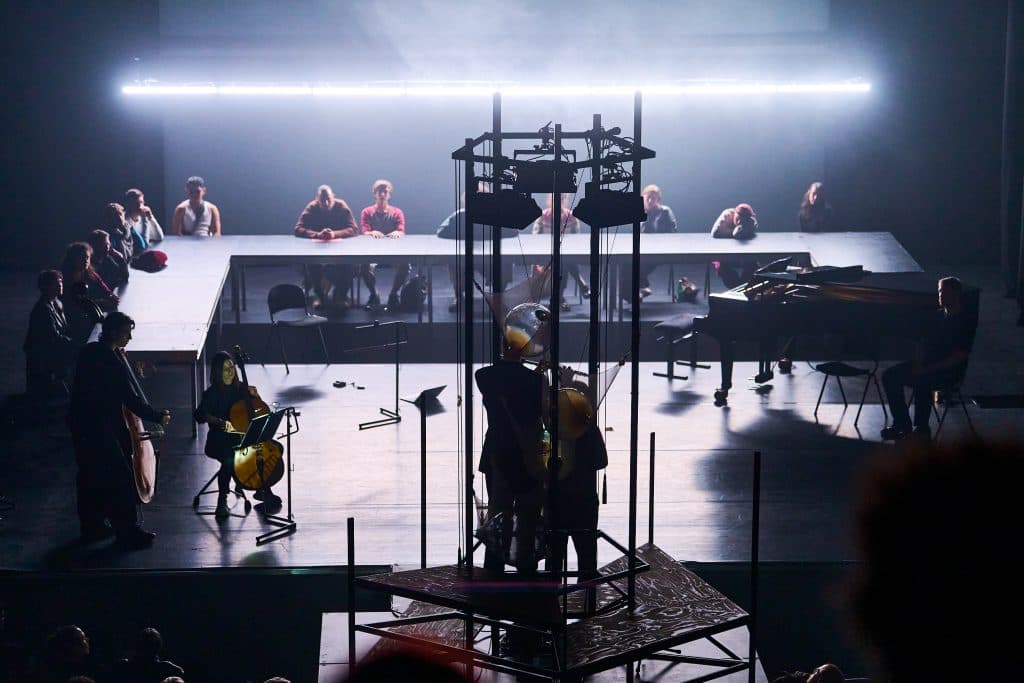
The opening performance, Maritime Rites by Alvin Curran set the tone of a festival demanding ourwitness; with locals gathering in confusion at the strange sounds accumulating acrossthe Hofvijver. Boats moved in a ritualistic disorder across the lake in a choreography of chaosunderscored by Schoenbergian atonality, with brass instruments howling across the water andfield recordings merging with synthesised crashing waves, transforming the river into a theatre ofstorm and migration. The music collapsed boundaries between nature and noise through intentionand, dare I say, accident? Synths crackled like broken masts, startling birds on the small island inthe Hofvijver, never quite settling and always resisting. It was a bewildering and oftenuncomfortable experience. Maritime Rites was a soundscape that rejected aesthetics anddemanded witness, a fitting overture to the provocations and dialogues woven throughout theweekend.
Rewire opened by positioning its queen in a place of abstract listening, hoping the pawns wouldfollow, not in obedience, but in recognition that the most radical gestures often begin in stillness,in witnessing, in tuning in to what seeps beneath the surface, to what lurks beneath the soils ofthe avant-garde.
We know Rewire as a festival that shelters fugitives of music, sounds on the outskirts of ouraudible cities, sounds that bring us together as fugitives of listening. And Rewire delivered on thatpromise. For one weekend in April, the Hague became a confluence of sonic pilgrims, arrivingfrom as far as the outskirts of Australia. As a first-time attendee, my expectations were high and Ileft not only bewildered but deeply inspired in terms of artistic practice and personal reflection.Rewire flowed across the city like a sonic tide, forming passageways shaped by a network of ourcollective listening. With over 220 events across four days and 25 venues, spanning genres fromexperimental, neo-classical to noise, ambient, and beyond, it offered a kaleidoscope of possibleexperiences. One could curate a neo-classical weekend bathed in stained-glass reverence, attendingperformances like those of Olivia Block Trio and Anja Lauvdal. Another could sink into heavynoise with the return of Yellow Swans after 11 years of silence. Or perhaps drift into an indie-rockorbit, catching Good Sad Happy Bad as they stepped out from behind their favourite tree.Beyond concerts, Rewire immersed us deeper into performances such as CORTEX: Four States ofMind and A Short History of Decay by Billy Bultheel, among many others including the collectiveVerdensteatret.
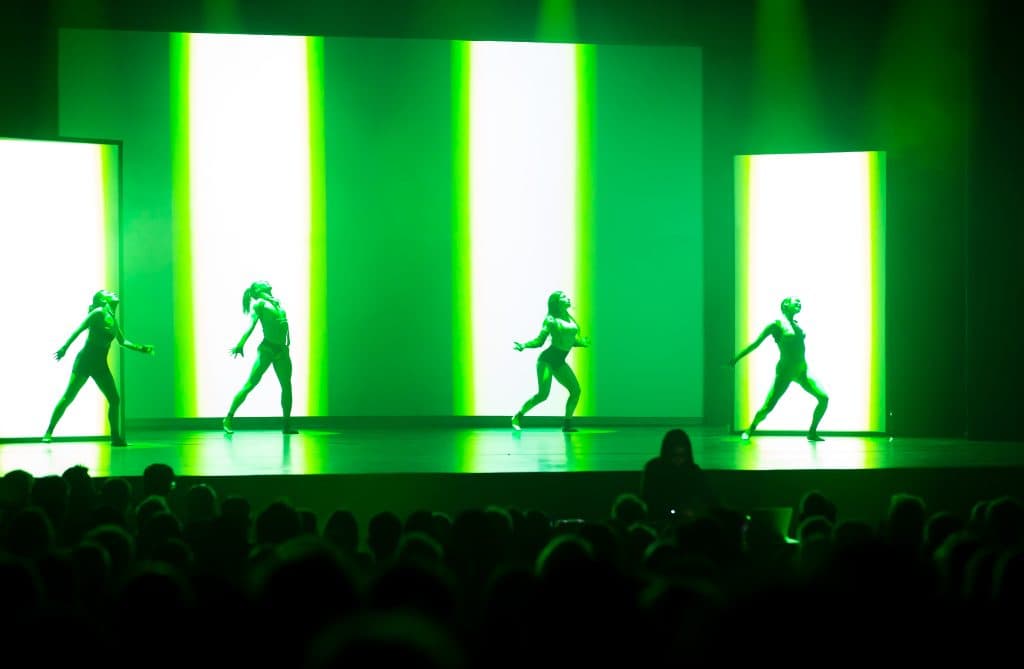
Among my highlights was a live performance by Osmium, a supergroup comprising HildurGuðnadóttir, Sam Slater, James Ginzburg, and Rully Shabara. Drawing from diverse artisticbackgrounds, they assembled like the dense element their name evokes, crafting a hypnotic voyagethrough mechanical and organic sounds. Shabara’s brittle, abrasive vocals merged with granulartextures in a sound-world both overwhelming and transcendental, leaving me drained andmesmerised, rendering me almost unable to continue with the evening sounds as I questionedwhether there was any worth, nothing could top that.
Another unforgettable performance was Heinali & Andriana-Yaroslava Saienko. I had neverexperienced anything like it. As light poured through the church windows, a single table stoodslightly off-centre with a modular synth rack cloaked in haze. Andriana walked gently to the stage,positioning herself just behind a shard of light, a gesture of concealment that only magnified her power. The duo reworked Hildegard von Bingen’s compositions for voice and modular synth,channeling Bulgarian vocal traditions with forceful intonation. Timid in presence but towering inresonance, she drew us into her void. Within ten minutes, tears welled up as I sat transfixed, caughtin the refracting interplay of drone, voice, and sacred space. Other standouts included Joan LaBarbara, Heith, and a surprise underdog: Radio Hito.
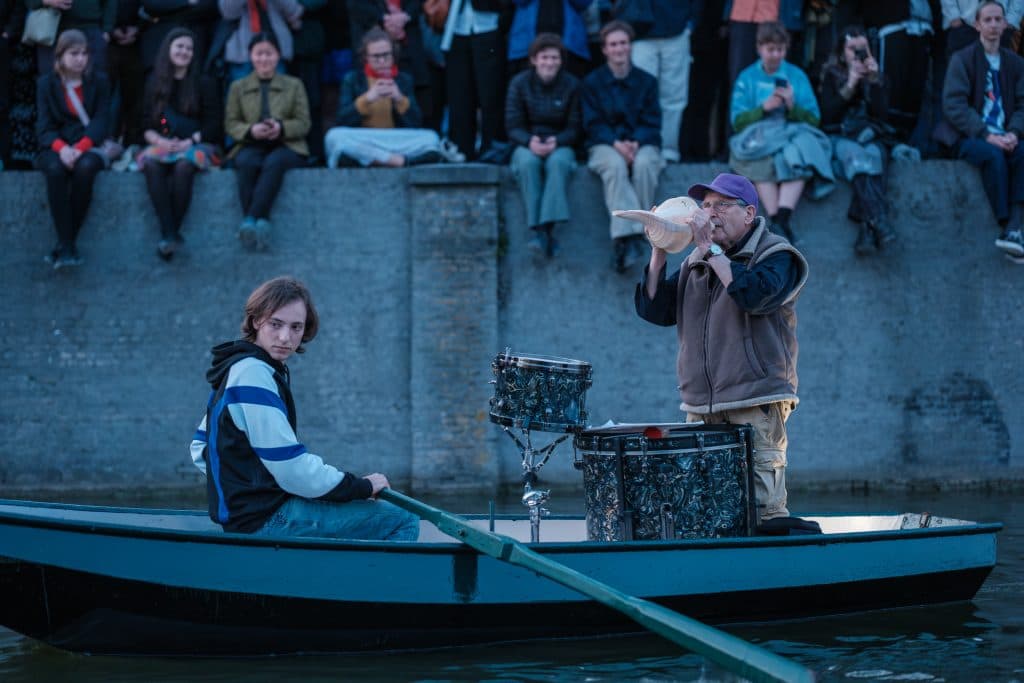
What truly sets Rewire apart from other festivals is its commitment to discourse. The range of talks,panels, and workshops provided space not only to hear but to understand. One highlight for me wasthe conversation with Joan La Barbara—a moment of profound artistic generosity.Amongst the range of installations which were present across the city; Navid’s ‘Organism +Excitable Chaos’ artwork stood out to me, exploring chaos and entropy. On the first day; the fiveinstallation artists held a discussion panel, diving into their work, the meanings and process’s. ‘Wefind ourselves trying to find meaning within the chaos, humans love to assign meaning withinentropy and chaos, imprinting order onto disorder.’ As I sat consumed by the installation, I foundmyself assessing the motion of the pendulum in correlation to the other mechanical motions,attempting to find logical parallels between the organisms. Navid’s installation thrives of the needof humans to assign order and I realised this while I fell deeper into the pendulums motion likeAlice down the rabbit hole. Upon this realisation, maybe one has to accept entropy as it is andremove the need to assign order onto chaos; take from this what you will; in this, maybe sometimeslistening means relinquishing control, sitting with entropy instead of solving it.
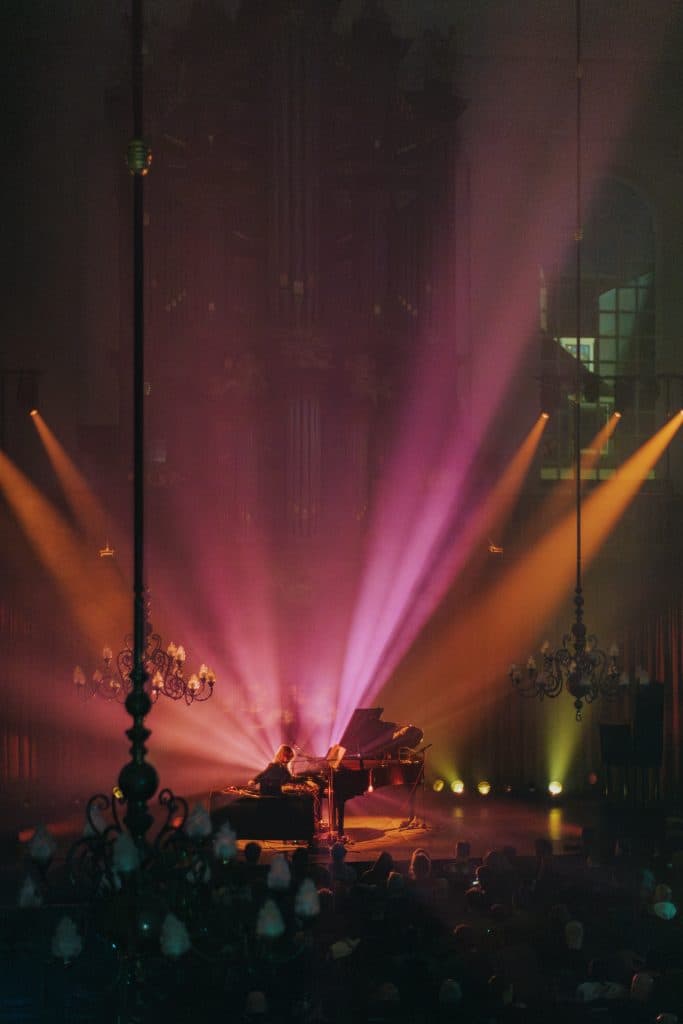
The Ring On Instrumental Time, an artist led symposium, lingered with me long after it ended. Itposed powerful questions which as a POC were very thought provoking for myself: They asked anddiscussed ideologies on what happens when instruments are stripped from their landscapes, howsonic tools born of place and time are silenced by colonial removals. What stayed with me most wasthe idea that our bodies themselves are archives. Even when we’re not consciously absorbingknowledge, we carry the imprints of our ancestors, their struggles, their rhythms and theirresilience. That inheritance gives us power today, a quiet authority that lives in our bones andbreath.
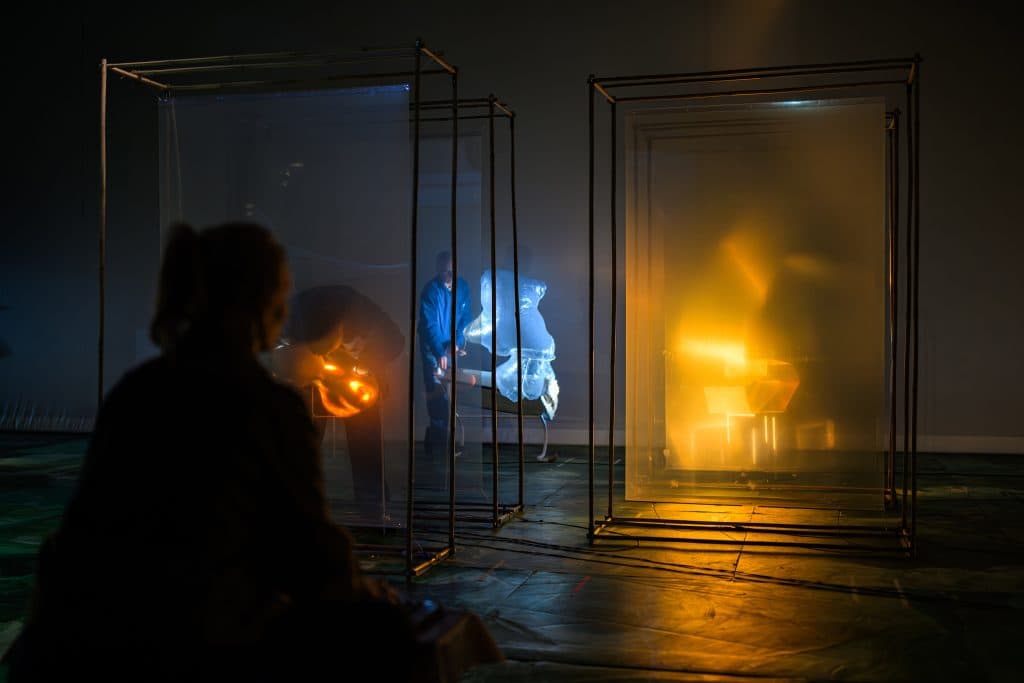
And so, Rewire didn’t simply present music. It offered echoes of resistance, of ancestral rhythmsburied under the surface of time, reinforced through talks by non other than Brandon La Belle. Itasked us to lean in, to stay still, to let the sound shape us rather than shape it. In doing so, itreminded me that listening is not passive. It is a radical act of presence, of care, and ultimately, oftransformation. “We all start with our own listening position, but we do not end there,” reads a linefrom Norient’s publication. Rewire didn’t ask me to listen—it demanded it. It rewired my mind to adeeper frequency of presence, a frequency I find myself longing to return to. Rewire is more than‘just’ a music festival; it’s a gathering of sonic fugitives, of those who find solace in the dissonance,harbouring within a space of deep listening and unlearning. Until next year Rewire, I’ll be listeningfor the echo.
by Ushara Dilrukshan
Back to home.